
Legal systems, the cornerstone of any society, serve to maintain order and justice. They have evolved over millennia, originating from the earliest human civilizations. This article delves into some of the most ancient legal systems that paved the way for modern jurisprudence.
The Code of Ur-Nammu
It is believed that the world’s first written legal code was the Code of Ur-Nammu, which was developed in Mesopotamia around 2100 BCE. This ancient code provided a framework for social transparency and justice, primarily focusing on addressing personal injury, theft, and marital issues.
The Code of Ur-Nammu is significant for its application of a fine system instead of corporal punishment, showcasing early signs of a justice system more familiar to contemporary society.
The Code of Hammurabi
Next came the Code of Hammurabi, a Babylonian code that dates back to around 1754 BCE. Known for its ‘eye for an eye’ philosophy, the Code of Hammurabi is one of the most complete ancient legal documents in history. It comprises 282 laws that governed contracts, personal property, family legal matters, and more.
Hammurabi’s code also introduced the presumption of innocence – a fundamental precept of modern legal systems – and established that the burden of proof was on the accuser.
Ancient Egyptian Laws
In parallel with Mesopotamian civilizations, Ancient Egypt developed a unique legal system derived from the concept of Ma’at, which symbolized truth, balance, and order. Even though there are no surviving texts akin to legal codes, the Egyptian system was known for its courts that handled disputes relating to commerce and property.
Egyptian pharaohs were considered lawgivers, enacting authorities on economic and civil rights, thus leaving their indelible mark on legal history.
Hebrew Law and the Ten Commandments
The Hebrew law system, exemplified by the Ten Commandments, contributed significantly to ethical and legal standards. As a predominantly religious legal system, these laws were designed to govern both spiritual and civil life.
The commandments addressed personal morality and societal duties, influencing the legal principles of western civilization profoundly.
Roman Law Foundations
Roman law is pivotal in the history of the Western legal system. The Twelve Tables, created around 450 BCE, were the Romans’ earliest attempt to create a code of law and is considered the foundation of Roman jurisprudence.
Roman law emphasized written statutes and equity, and influenced the development of legal systems in most parts of Europe and its colonies, including common law and civil law traditions.
Conclusion
The evolution of ancient legal systems laid the groundwork for the law as we know it today. Each contributed unique concepts and practices, from codification to the principles of justice and equity, which have helped shape modern legal frameworks.
Exploring these ancient systems underscores the universal and timeless quest for justice, order, and stability.
Legal systems, the cornerstone of any society, serve to maintain order and justice. The evolution of ancient legal systems laid the groundwork for the law as we know it today. 



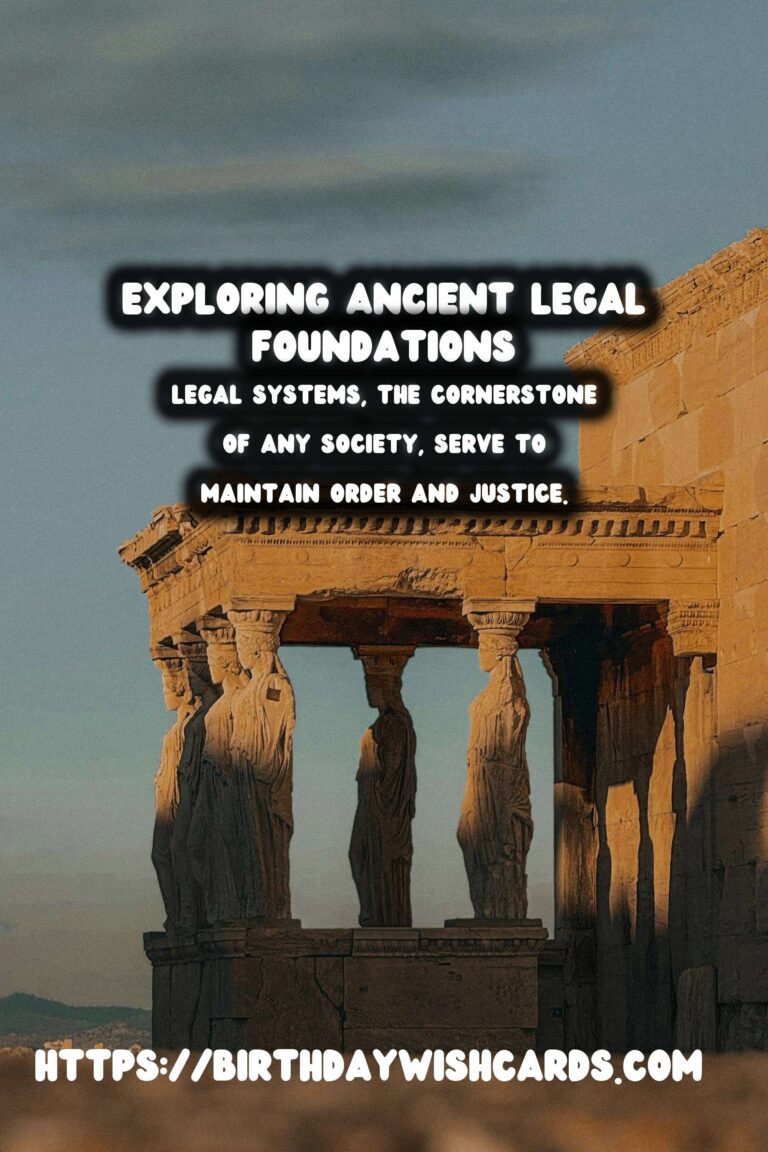
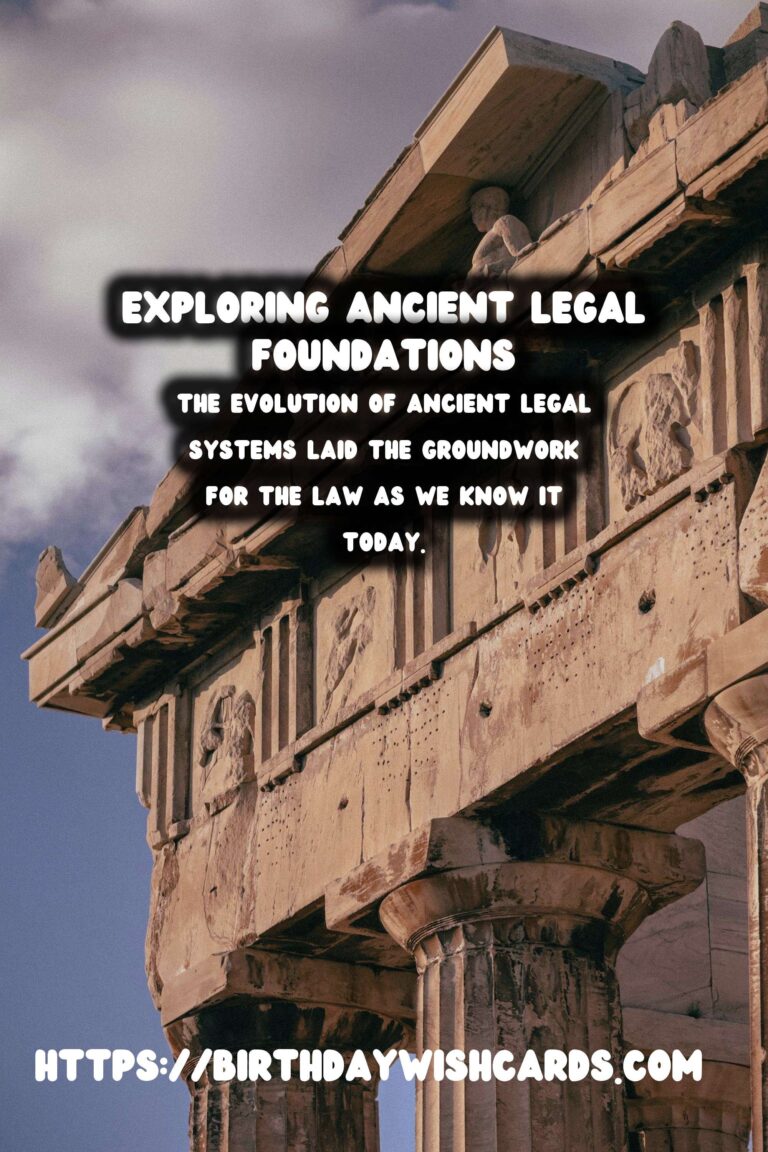
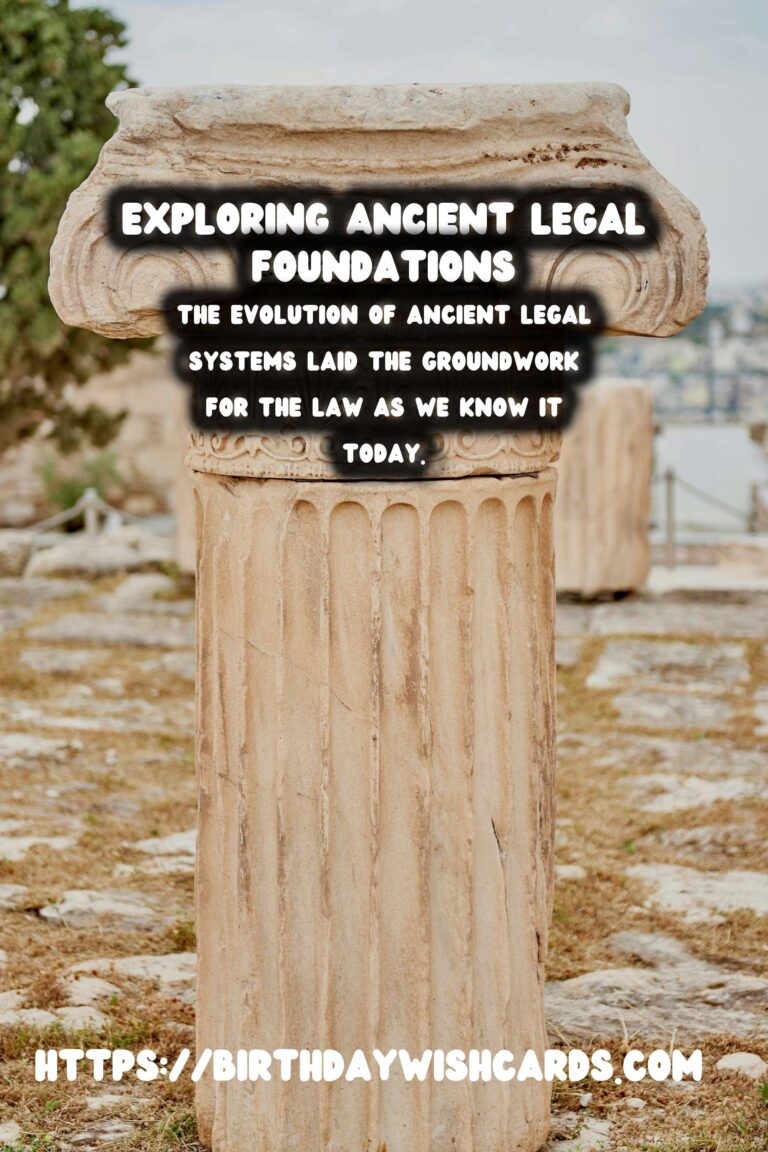
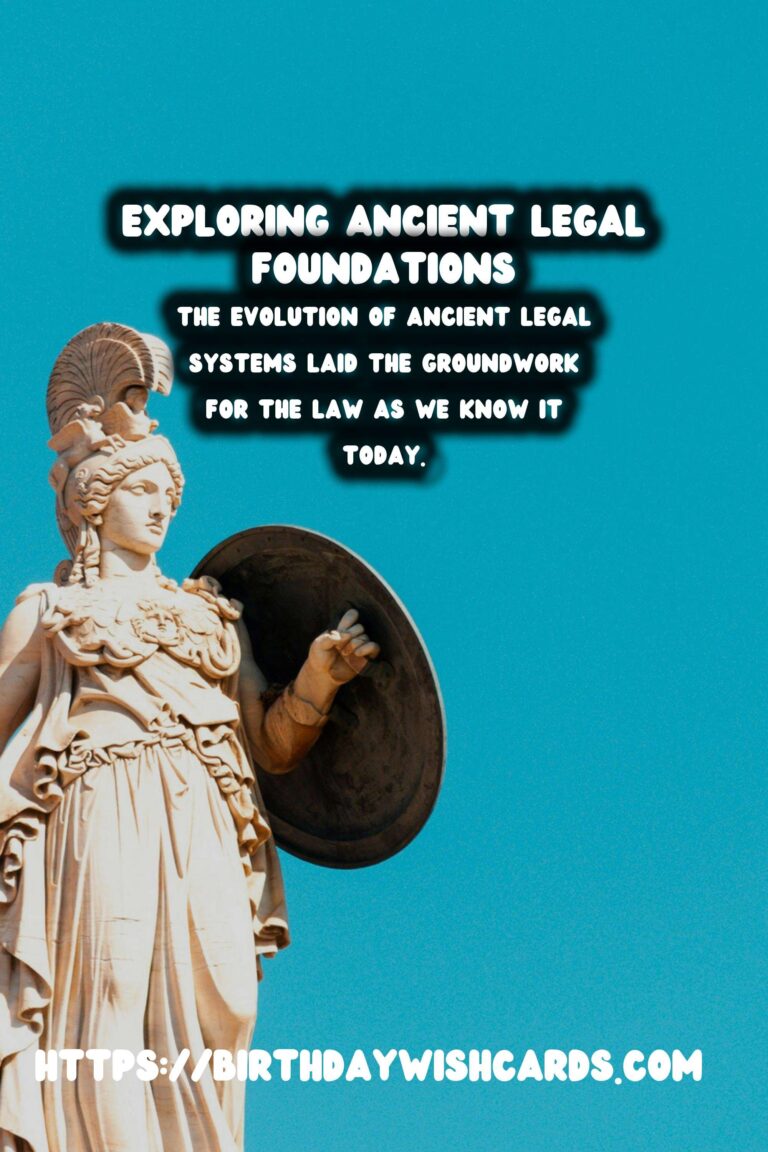
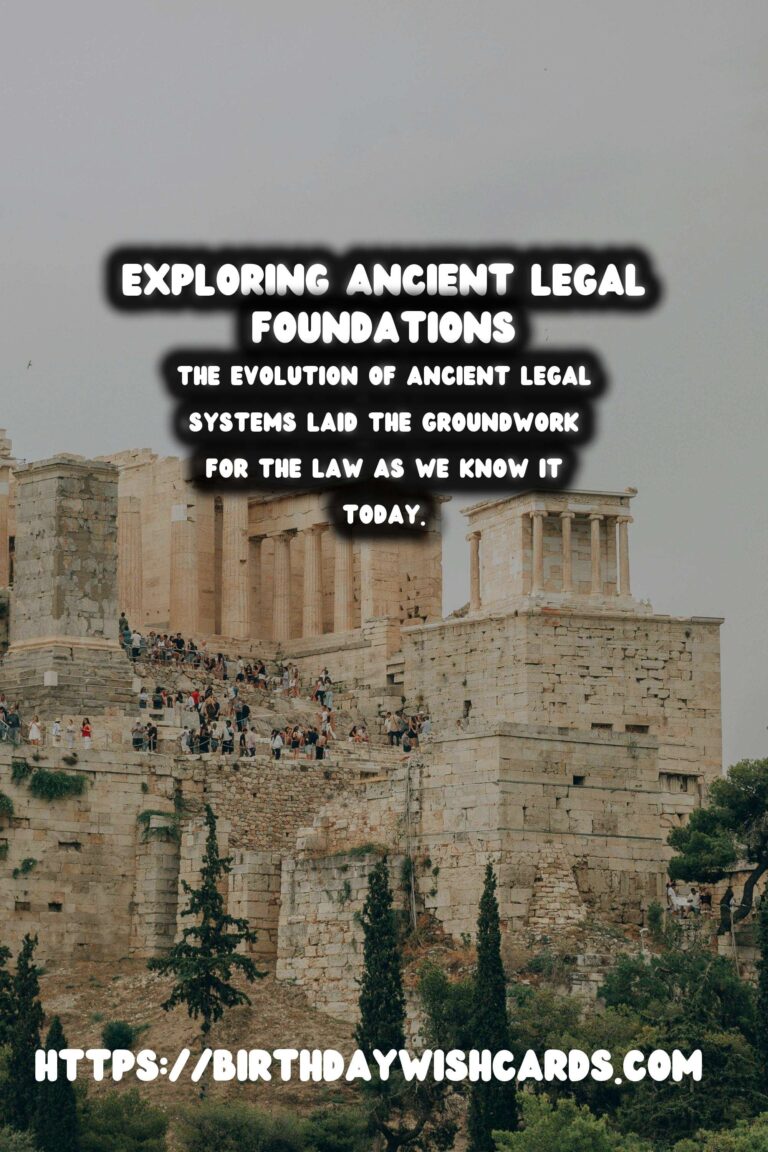

#AncientLaw #LegalHistory




